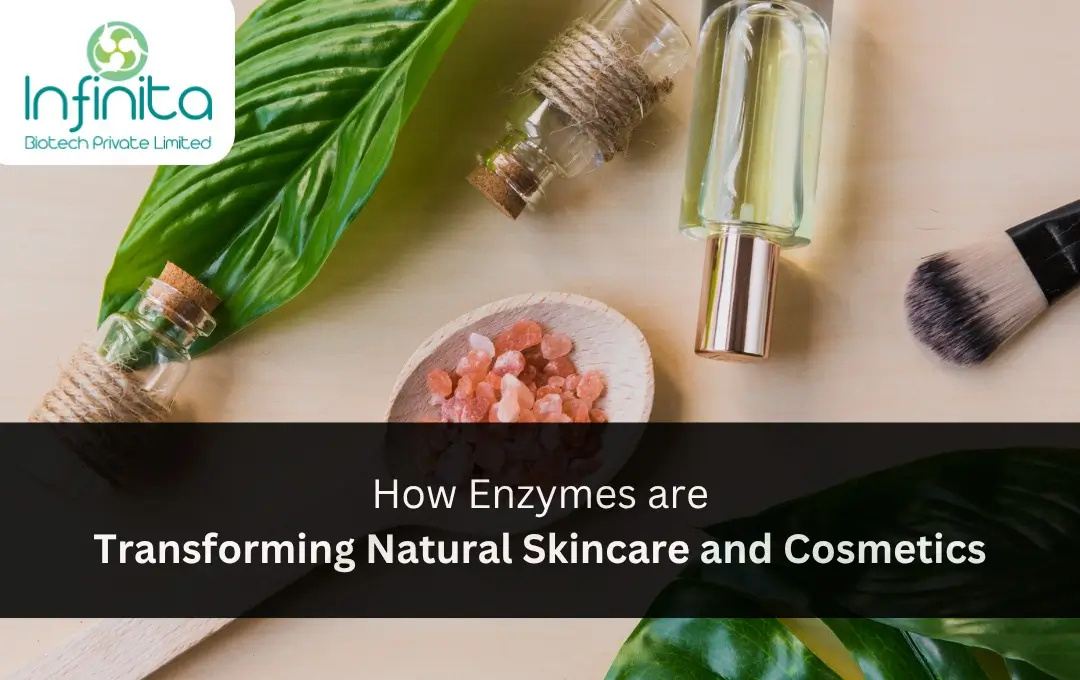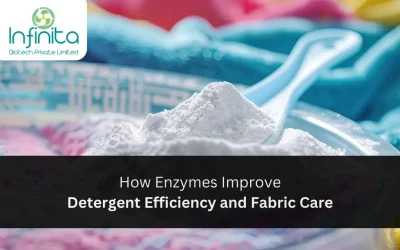Introduction
The beauty industry is undergoing a transformation driven by consumer demand for clean, sustainable, and science-backed products. This shift is replacing harsh synthetic chemicals with gentle, naturally derived alternatives. Among the most innovative developments is the use of cosmetics enzymes—bioactive proteins that offer precise, skin-friendly solutions for cleansing, rejuvenation, and overall skin health.
With their ability to deliver visible results without compromising skin integrity, enzyme-based products are redefining natural skincare.
What are Cosmetics Enzymes?
Cosmetics enzymes are specialised proteins used in beauty formulations to catalyse specific skin-beneficial reactions. Derived from plant, microbial, or fermentation sources, they are increasingly incorporated into personal care products to enhance performance and replace aggressive chemical treatments.
Common examples include:
- Papain (from papaya) and Bromelain (from pineapple) for gentle exfoliation.
- Proteases for breaking down dead skin proteins.
- Lipases for sebum control and deep cleansing.
- Amylases to aid in removing skin surface impurities.
(Interlink with: Industrial Enzyme Solutions)
How Cosmetics Enzymes Work in Skincare
Enzyme-based skincare operates through targeted biochemical action. For example, proteolytic enzymes dissolve keratin in dead skin cells, revealing fresher layers beneath. Unlike scrubs or acids, these enzymes act selectively, avoiding microtears or excessive irritation.
They also assist in pigmentation control by breaking down melanin clusters and improving cell turnover, resulting in a more even complexion. Additionally, enzymatic action enhances skin permeability, allowing serums and moisturisers to penetrate deeper.
Benefits of Enzyme-Based Cosmetics
- Gentle Exfoliation
Unlike physical exfoliants that rely on abrasive particles, enzymes dissolve dead cells enzymatically. This makes them ideal for sensitive or acne-prone skin. - Boosted Ingredient Absorption
By clearing surface buildup, enzymes increase the effectiveness of active ingredients like vitamins, antioxidants, and peptides. - Eco-Friendly Formulations
As biodegradable proteins, cosmetics enzymes break down naturally, leaving no harmful residues in waterways or ecosystems. - Skin Barrier Respect
Enzyme treatments maintain skin’s natural lipid balance, preventing over-stripping and dryness.
(Interlink with: Healthcare Enzymes)
Applications of Cosmetics Enzymes in Product Categories
Cleansers and Exfoliators
Papain and bromelain are often used in facial cleansers and peel powders for gentle exfoliation.
Anti-Ageing Creams and Serums
Enzymes help renew skin by promoting natural collagen production and improving cell turnover.
Hair and Scalp Treatments
Lipases and proteases can remove product buildup and excess oil from the scalp without stripping natural moisture.
Sustainability and Safety in Enzyme-Based Beauty
The shift to enzymes based cosmetics supports cleaner beauty by reducing dependency on synthetic exfoliants like microbeads, which harm marine life. These enzymes are biodegradable and can be sourced sustainably through fermentation.
From a dermatological perspective, enzyme-based formulations are generally well-tolerated, making them suitable for people with sensitive skin conditions such as rosacea or eczema.
Future Trends in Cosmetics Enzymes
Probiotic Skincare Integration
Enzymes will work alongside beneficial bacteria to support a healthy skin microbiome, enhancing both barrier function and resilience.
Smart Delivery Systems
Nanotechnology and encapsulation will allow enzymes to activate only upon reaching targeted skin layers, improving efficacy and reducing the need for preservatives.
Conclusion
The integration of cosmetics enzymes into skincare and beauty products signals a new era in personal care—one where performance, sustainability, and skin health go hand in hand. By harnessing the precision of nature’s biocatalysts, brands can deliver products that are not only effective but also environmentally responsible, meeting the modern consumer’s demand for beauty without compromise.

 Summarize this Article with AI
Summarize this Article with AI






